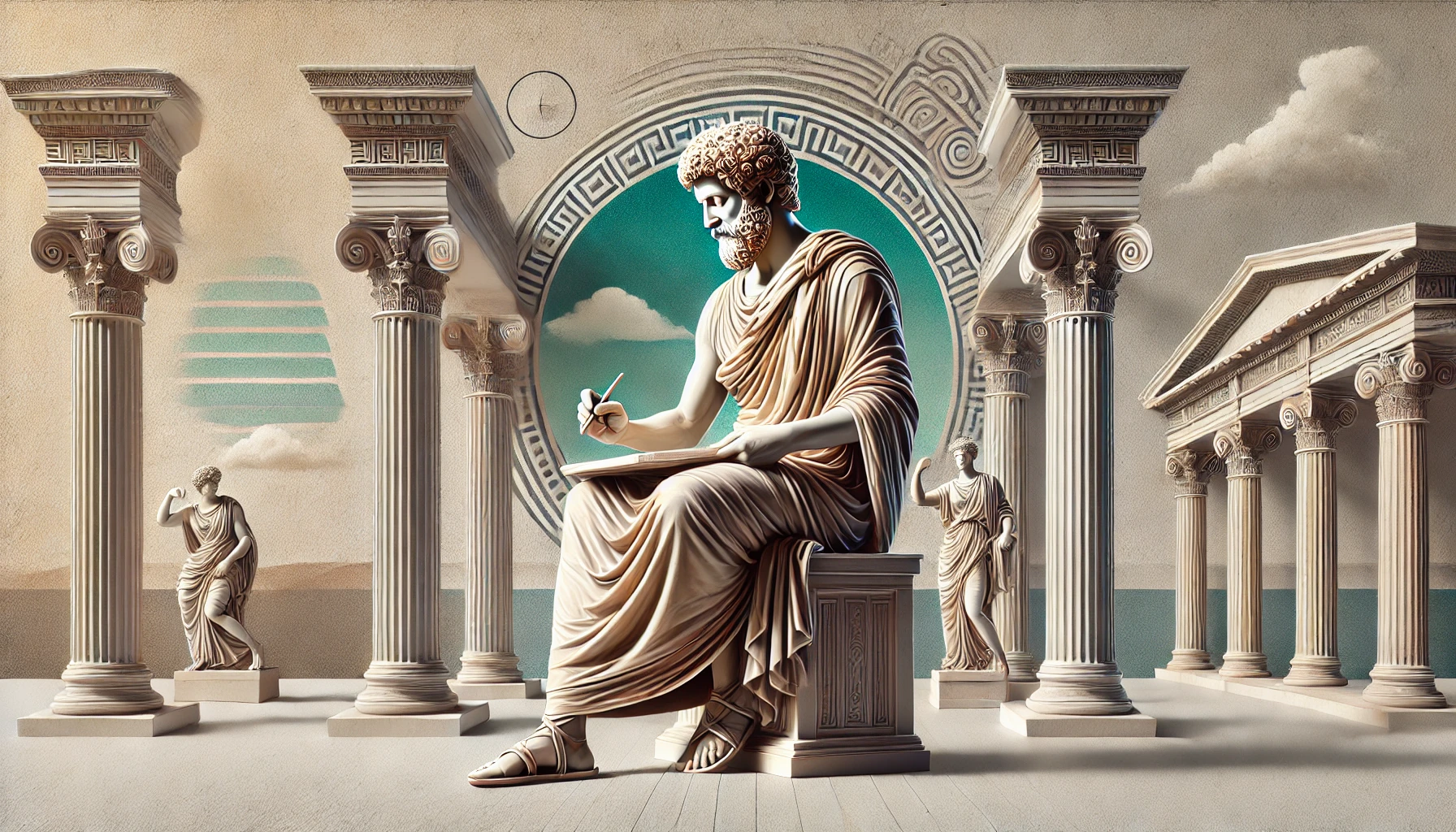Marcus Aurelius, one of the most famous Stoic philosophers, was not just an emperor but a warrior of wisdom. His life was a blend of political power, military might, and deep philosophical contemplation. Known for his personal writings, “Meditations,” he offers a wealth of practical wisdom that continues to inspire and guide us today. Let’s delve into the life, quotes, and teachings of Marcus Aurelius, the Stoic philosopher emperor.
Who Was Marcus Aurelius?
Born in 121 CE in Rome, Marcus Aurelius rose to become one of Rome’s most respected emperors. He ruled from 161 to 180 CE, a period marked by military conflict and political challenges. Despite the pressures of his position, he found solace in Stoic philosophy, which he diligently practiced and recorded in his private journal, later known as “Meditations.”
His writings provide a candid look at his inner struggles and his efforts to live virtuously despite external chaos. Marcus Aurelius remains a timeless figure whose teachings on resilience, duty, and inner peace resonate with many today.
Marcus Aurelius’ Key Teachings
“The happiness of your life depends upon the quality of your thoughts.”
“You have power over your mind – not outside events. Realize this, and you will find strength.”
Marcus Aurelius’ teachings focus on the importance of inner strength, the power of thoughts, and the practice of virtue. Here are some of his most influential ideas:
1. Control Your Mind
“You have power over your mind – not outside events. Realize this, and you will find strength.” – Marcus Aurelius
Marcus Aurelius emphasized the importance of controlling our thoughts. He believed that by mastering our minds, we could maintain our peace and strength regardless of external circumstances.
Practice:
- Mindfulness Meditation: Spend a few minutes each day practicing mindfulness meditation to focus your mind and cultivate inner peace.
- Positive Thinking: Train your mind to focus on positive thoughts and perspectives, especially in challenging situations.
2. Embrace Duty and Responsibility
“Waste no more time arguing about what a good man should be. Be one.” – Marcus Aurelius
Marcus Aurelius believed in fulfilling one’s duty and taking responsibility for one’s actions. He urged people to live according to their values and to act with integrity and purpose.
Practice:
- Set Clear Goals: Define your values and set goals that align with them. Take consistent actions to achieve these goals.
- Act with Integrity: Ensure that your actions reflect your principles and values, even when it’s difficult.
3. Accept What You Cannot Control
“Accept the things to which fate binds you, and love the people with whom fate brings you together, but do so with all your heart.” – Marcus Aurelius
Marcus Aurelius taught the importance of accepting things beyond our control. By focusing on what we can control – our thoughts and actions – we can find peace and contentment.
Practice:
- Let Go of Control: Identify things that are beyond your control and consciously let go of the need to control them.
- Focus on Response: Concentrate on how you respond to situations rather than trying to change the situations themselves.
4. Practice Gratitude
“When you arise in the morning think of what a privilege it is to be alive, to think, to enjoy, to love…” – Marcus Aurelius
Gratitude was central to Marcus Aurelius’ philosophy. He believed that appreciating life’s simple blessings could lead to a happier and more fulfilling life.
Practice:
- Morning Gratitude: Start your day by acknowledging three things you are grateful for.
- Gratitude Journal: Keep a daily journal where you write down things you are thankful for.
5. Live in Accordance with Nature
“Dwell on the beauty of life. Watch the stars, and see yourself running with them.” – Marcus Aurelius
Marcus Aurelius encouraged living in harmony with nature and finding joy in its beauty. He believed that by aligning ourselves with nature’s rhythms, we could achieve inner peace.
Practice:
- Nature Walks: Spend time in nature regularly to reconnect with the natural world and find tranquility.
- Simplify Your Life: Focus on simplifying your life and reducing unnecessary stress and complexity.
Conclusion
Marcus Aurelius’ life and teachings offer a profound guide to living with resilience, purpose, and peace. His emphasis on controlling the mind, embracing duty, accepting what we cannot control, practicing gratitude, and living in harmony with nature are timeless principles that can help us navigate the complexities of modern life. By integrating his teachings into our daily routines, we can cultivate a Stoic mindset and unleash our inner philosopher emperor.

